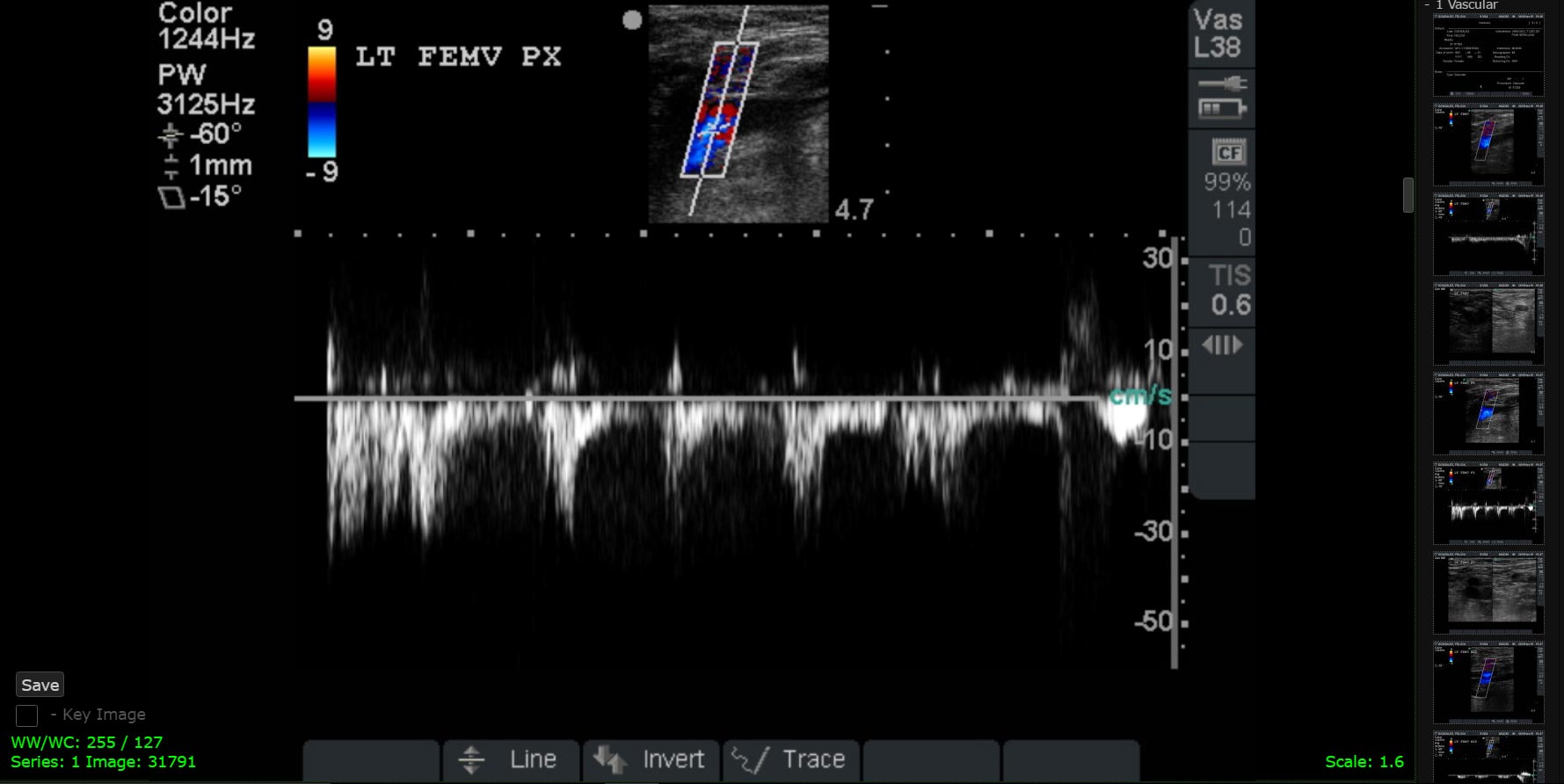
PORTABLE DIGITAL ULTRASOUND
 Ultrasound is a highly effective imaging modality. An ultrasound procedure produces images of any part of the body that is a gas-filled structure or is not covered by bone. This is a non-invasive, painless technique which does not emit ionization radiation. We use the newest portable ultrasound equipment manufactured by Alpinion. This allows our Sonographers to perform all studies in the comfort of the patient’s room, the types of ultrasound we provide are Abdominal, Ob/Gyn, small parts, echocardiograms and vascular studies.
Ultrasound is a highly effective imaging modality. An ultrasound procedure produces images of any part of the body that is a gas-filled structure or is not covered by bone. This is a non-invasive, painless technique which does not emit ionization radiation. We use the newest portable ultrasound equipment manufactured by Alpinion. This allows our Sonographers to perform all studies in the comfort of the patient’s room, the types of ultrasound we provide are Abdominal, Ob/Gyn, small parts, echocardiograms and vascular studies.
Images can be viewed online, provided on CD-ROM, or hard copy printed for referring physician review.
MEDICAL NECESSITY DOCUMENTATION
Ordering of Tests
All procedures performed by the IDTF must be specifically ordered in writing by the physician who is treating the beneficiary, or a non-physician practitioner, nurse practitioner, clinical nurse specialist, or physician assistant, as defined in §1861(s)(2)(K) of the Act, who furnishes, pursuant to State law, a consultation or treats a beneficiary for a specific medical problem, and who uses the results of a diagnostic test in the management of the beneficiary’s specific medical problem, as noted in 42CFR410.32.
 The order must specify the diagnosis or other basis for the testing. The supervising physician for the IDTF may not order tests to be performed by the IDTF, unless the IDTF’s supervising physician is in fact the beneficiary’s treating physician with a prior relationship to the patient. The IDTF may not add any procedures based on internal protocols without a written order from the treating physician.
The order must specify the diagnosis or other basis for the testing. The supervising physician for the IDTF may not order tests to be performed by the IDTF, unless the IDTF’s supervising physician is in fact the beneficiary’s treating physician with a prior relationship to the patient. The IDTF may not add any procedures based on internal protocols without a written order from the treating physician.
Although all procedures performed by the IDTF must be specifically ordered in writing by the practitioner treating the beneficiary as noted above, the mere fact that the test(s) were properly ordered does not reflect or imply Medicare coverage for these services. Medical necessity must be apparent and statutory exclusions, national and local coverage determinations (LCDs) apply.
As noted above, the results of any diagnostic test performed by the IDTF must actually be used in the management of the beneficiary’s specific medical problem. If a beneficiary’s medical care will not be significantly altered by the results of a test performed by an IDTF, even if properly ordered, it will not be paid. Similarly, any test performed by an IDTF must be in an appropriate place of service.
How to Order
An order may include the following forms of communication: a) A written document signed by the treating physician/practitioner, which is hand-delivered, mailed, or faxed to the testing facility; (No signature is required on orders for clinical diagnostic tests paid on the basis of the clinical laboratory fee schedule, the physician fee schedule, or for physician pathology services) b) A telephone call by the treating physician/practitioner or his/her office to the testing facility; or c) An electronic mail by the treating physician/practitioner or his/her office to the testing facility. Note: If the order is communicated via telephone, both the treating physician/practitioner or his/her office, and the testing facility must document the telephone call in their respective copies of the beneficiary’s medical records. While a physician order is not required to be signed, the physician must clearly document, in the medical record, his or her intent that the test be performed.
 An IDTF may perform the service based on the verbal order of the treating physician; however, the IDTF must obtain an order that is written, dated, and signed by the treating physician before a claim is submitted for the service. In any case, it is expected that a hard copy of the physician’s order be available to Medicare upon request.
An IDTF may perform the service based on the verbal order of the treating physician; however, the IDTF must obtain an order that is written, dated, and signed by the treating physician before a claim is submitted for the service. In any case, it is expected that a hard copy of the physician’s order be available to Medicare upon request.


